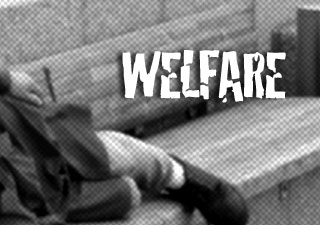Commentary

Re-examine Public Welfare Spending
Pennsylvania has, as of this writing, gone 90 days without a budget, longer than any other state. The impasse has been driven by Gov. Rendell’s demand for higher spending and new taxes. Though Rendell argues that the budget has been “cut to the bone,” the work of a leading member of his own party, Auditor General Jack Wagner, proves otherwise.
In a series of audits, Wagner found waste and fraud in several state Department of Public Welfare’s (DPW) programs. Audits of the state’s Low Income Home Energy Assistance Program (LIHEAP) have revealed the same problems repeatedly. LIHEAP provides grants to households with incomes of up to 150 percent of the federal poverty line, meaning a family of four earning up to $29,025 can receive benefits. Two audits over a three years revealed lax procedures, insufficient supervision, and inadequate oversight. The second audit resulted in the arrest of 18 people for stealing more than $500,000 of LIHEAP funds and related crimes.
The Auditor General’s office also found that DPW failed to make proper eligibility determinations on more than 1,600 randomly selected Medicaid applications between January 2005 and March 2008-resulting in $3.3 million in payments to a fraction of ineligible recipients. Many of the improper disbursements were due to DPW’s failure to verify recipients’ age, disability, and family relationship requirements, and to promptly review recipients’ financial and other eligibility information. The total cost of this fraud would likely be hundreds of millions of dollars.
DPW’s Special Allowance Program was also labeled as “rife with mismanagement and poor oversight,” creating an environment for potential fraud and abuse. This mismanagement has cost taxpayers tens of millions of dollars.
Welfare advocates justify spending increases by emphasizing that they’re necessary to provide for Pennsylvania’s vulnerable residents, including children, older adults, and the disabled. However, like everything else in the budget, we must consider the efficiency and the outcomes.
The Department of Public Welfare has done little, if anything, to discourage fraud and waste. Recommendations from the Auditor General that should have been in place years ago have not been implemented adequately, resulting in more people dependent on the state government rather than the elimination of dysfunctional and wasteful programs.
Welfare efficiency is scarcely addressed. People most in need of certain programs are pushed to the periphery as false claims are filed for ineligible recipients. Taxpayer money is siphoned from people who need the program to people who do not.
The bureaucratic nature of DPW exacerbates the problem. The incentive structure is such that the department’s primary goal is to add to its clientele, regardless of need. The more clients they have, the more funding they can obtain, creating greater job security for the bureaucrats.
Finally, wasteful spending is driving up taxes for working Pennsylvanians. Overspending by Harrisburg, followed by greater demands of taxpayers, has plagued our Commonwealth for years and must stop. Rather than demand ceaseless increases in spending driven by a myriad of tax increases, Gov. Rendell and lawmakers need to address the waste and inefficiency in welfare programs.
The budget debate essentially addresses the wrong problem. Rather than simply finding new ways to extract more money from hardworking Pennsylvanians, policymakers should examine how tax dollars are spent. The fact that Pennsylvania’s most vulnerable citizens need help is indisputable. But government programs riddled with inefficiency, fraud, and mismanagement are a disservice to them. Accountability and responsibility are needed to protect taxpayers and serve Pennsylvania’s most vulnerable citizens.
# # #
Abhilash Samuel is a Research Associate with the Commonwealth Foundation, (www.CommonwealthFoundation.org), an independent, nonprofit public policy research and educational institute based in Harrisburg.